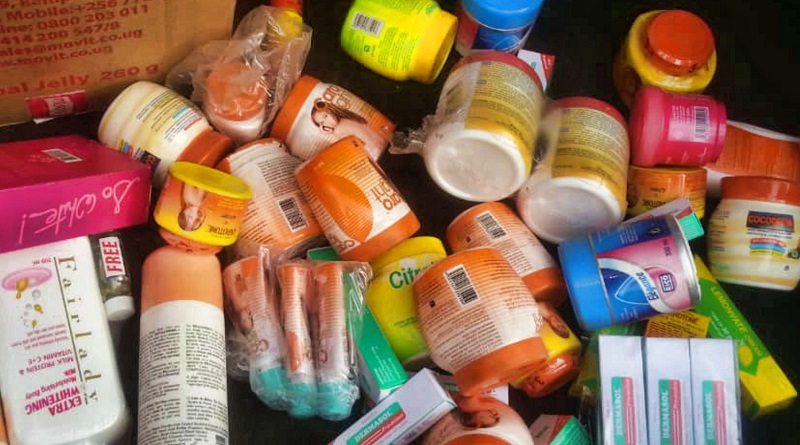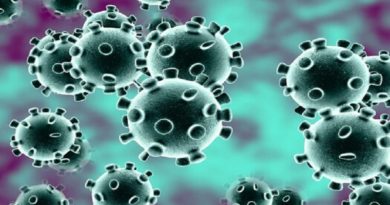Toxic mercury cosmetics still marketed as a ‘solution’ to dark skin -Report
Despite being banned by a global treaty, mercury-added skin lightening products (SLPs) are still sold by some of the world’s biggest online retailers to unsuspecting consumers, according to a new Zero Mercury Working Group (ZMWG) report released on Saturday 20 October 2023. The report provides yet more evidence that hazardous SLPs are widely available across the global market.
NGO partners across 12 countries, purchased 213 suspect SLPs from 23 online platforms. Out of these 191 (90%) had mercury concentrations ranging from 1.18 to 74,800.00 ppm of mercury, above the 1 ppm limit mandated for cosmetics by many governments as well as the Minamata Convention.
This report comes at a critical time as Parties to the Fifth Conference of Parties (COP5) of the Minamata Convention are preparing to discuss the amendment proposed by the Africa region which seeks to address the enforcement loopholes and implementation failures related to mercury-added cosmetics.
The African amendment is designed to strengthen the existing Convention provisions by:
- Prohibiting the manufacture and trade of all “mercury-added cosmetics”, instead of only those containing “over 1 ppm mercury”;
- Curtailing the merchandising of mercury-added SLPs, including sales, offering of sales, marketing, advertising and display;
- Coordinating inter-ministerial, bilateral and/or regional measures to phase-out mercury SLPs;
- Enhancing public awareness about the hazards of mercury SLPs.
This report highlights the current lack of effective controls to prevent mercury SLPs from being manufactured and sold online. Online platforms continue to evade their responsibility to prevent unscrupulous merchants from advertising, marketing and selling illicit mercury-added SLPs, which perpetuate the injustice lived by people of colour, especially women and girls, who are conditioned to adopt Eurocentric beauty standards influenced by “colourism”.
Mercury lightens the skin by suppressing the production of melanin and can also remove age spots, freckles, blemishes and wrinkles. But it may lead to rashes, skin discolouration and blotching and enter the body via absorption through the skin, inhalation, or orally.
The report’s findings, along with a recent Natural Resource Defence Council commissioned report, confirm that mercury compounds are an essential ingredient to SLPs. As a result, the report recommends that COP5 should lay the groundwork for regulating mercury compounds and making them subject to trade restrictions.
Michael Bender, Coordinator at Zero Mercury Working Group, said: “Despite the Convention’s ban on manufacture and trade, the proliferation and online sales of mercury cosmetics continues. However, if adopted, the African Region’s amendment banning advertising and sales of illegal SLPs can help prevent online marketing.”
Rico Euripidou, Campaign coordinator at ground Work in South Africa, said: “Over the years, the African region has taken a leadership role in phasing out mercury in products, including in lighting, dentistry and now skin lightening cosmetics. Toxic cosmetics are a global mercury crisis warranting coordinated international collaboration.”
Charline Cheuvart, Mercury Policy Officer at the European Environmental Bureau, said: “Once approved, the amendment will help complement and strengthen the current treaty and close loopholes that allow advertising, display and indiscriminate sales of mercury-added SLPs. It also reflects a willingness to drive the change envisioned by the Convention to “Make Mercury History.”
Leslie Adogame, Executive Director at Sustainable Research and Action for Environmental Development (SRADeV Nigeria), said: “In Nigeria, regulations apply to all advertisements and promotion of cosmetic products manufactured, imported, exported, sold, distributed or used in Nigeria. Notwithstanding, online retailers and e-commerce giants continue to flaunt the rules. It is time for regulatory agencies to commit to implementation of the Minamata Convention and aggressively enforce the zero tolerance mercury in cosmetics level in order to improve consumer protection”.
Mercury is a neurotoxin, meaning that it damages the nervous system. Long-term use of mercury-added SLPs may damage the eyes, lungs, kidneys, digestive and immune systems.
Since 2017, the ZMWG has conducted 4 separate market surveillance of suspect SLPs and we have analyzed around 1000 SLPs from over 40 online platform, which are on the ZMWG global database and the UNEP Global Mercury Partnership website.
Currently, the Convention requires that Each Party shall not allow, by taking appropriate measures, the manufacture, import or export of mercury-added Cosmetics (with mercury content above 1ppm), including skin lightening soaps and creams. Yet their use, both from local markets and the internet, continues to proliferate, due in part to the lack of national sales bans.
Skin-lighteners are sold as creams, lotions and soaps. ZMWG testing indicates that hundreds if not thousands of them are available in the global market. Those that use mercury as an active ingredient often contain from 2 to 10 percent mercury by weight.




